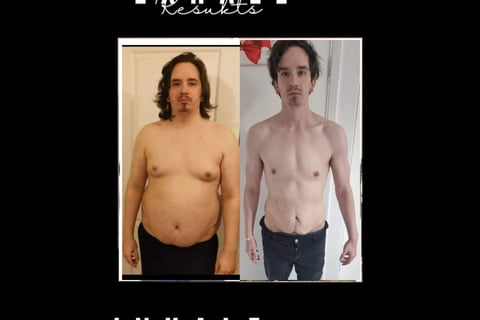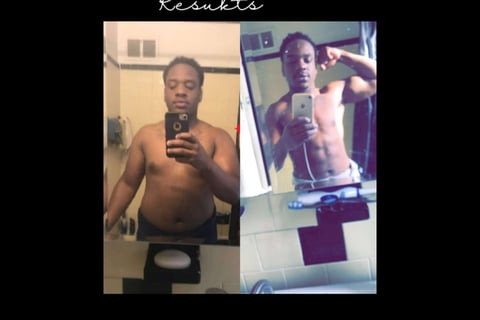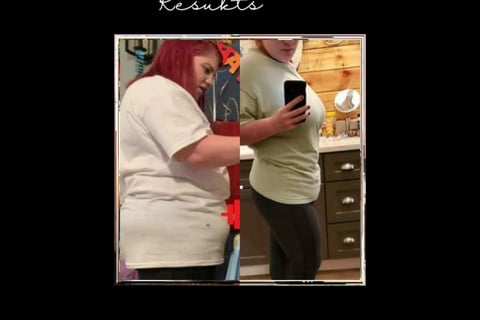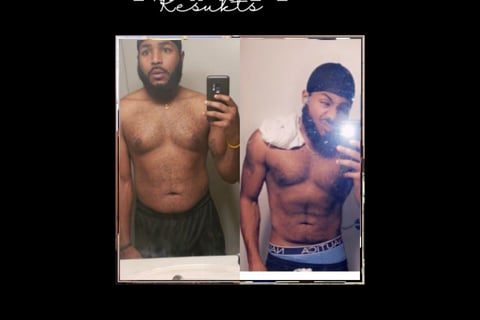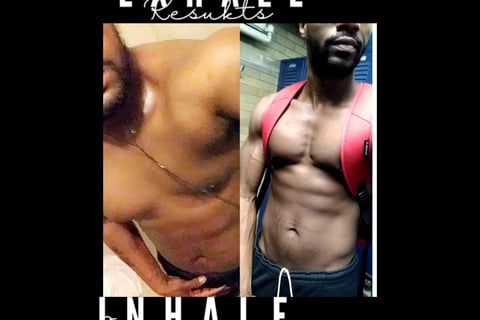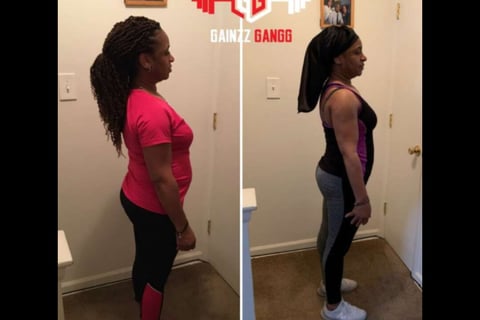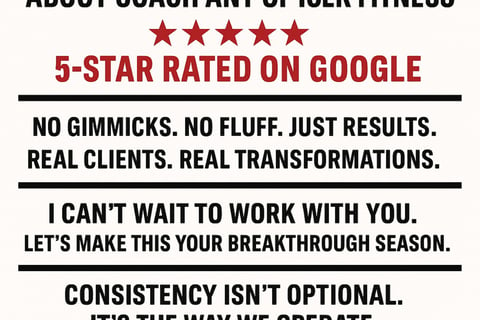The Importance of Rest in Fat Loss & Muscle Growth
Discover how rest and recovery are essential for fat loss and muscle growth. Learn why neglecting recovery can hinder your fitness progress and increase the risk of burnout or injury.
Coach Ant
5/9/20252 min read
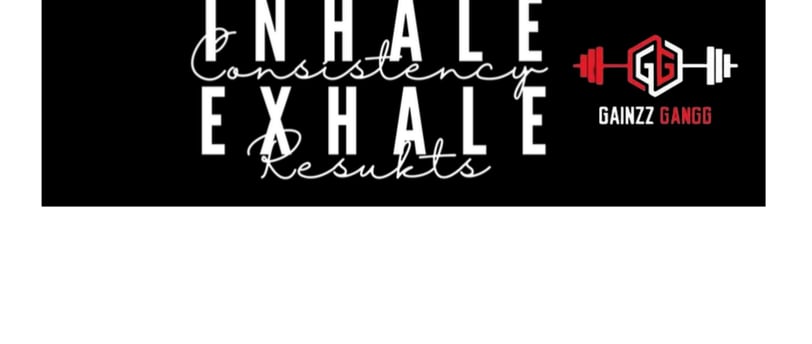

A lot of people think progress happens during the workout. But the truth is, your real gains—fat loss, muscle growth, better performance—come during recovery. Rest isn’t optional. It’s not a luxury. It’s a necessary part of the process if you’re serious about transforming your body and improving your health.
Training breaks the body down. Recovery builds it back stronger. Without rest, you’re just running yourself into the ground with no real benefit. You can push all you want, but if you’re not sleeping, not refueling, not taking time off when your body needs it, you’re not growing. You’re just burning out.
Rest allows your muscles to repair, your central nervous system to reset, and your hormones to regulate. When you constantly train without breaks, your cortisol spikes, inflammation builds, and fat loss slows down. You’ll hit plateaus faster. You’ll feel drained. You’ll lose motivation. That’s when injuries creep in. That’s when the body starts saying, “Enough.”
Signs You’re Not Recovering Enough
There’s a difference between being sore and being wrecked. If you’re always exhausted, always tight, getting sick more often, or not seeing results no matter how hard you’re training, your body is waving the white flag. Rest doesn’t mean you’re lazy. It means you understand how your body works.
Overtraining can lead to muscle breakdown, poor sleep, mood swings, and even weight gain. And yes—too much exercise without recovery can cause fat loss to stall completely. Your body needs downtime to release fat, reset your metabolism, and restore balance.
If you’re working out hard four to five times a week, you need at least one to two full rest days. That means no lifting, no HIIT, no circuits—just recovery. That could look like stretching, walking, foam rolling, or simply sleeping in and letting your body chill.
How to Recover Smarter and See Better Results
Start with sleep. Seven to nine hours a night isn’t a suggestion—it’s a requirement. That’s when your body produces the most growth hormone, rebuilds tissue, and regulates fat-burning hormones.
Hydration is key too. Water helps flush out toxins and reduces muscle soreness. Aim to drink consistently throughout the day—not just after workouts.
Nutrition matters just as much. Get enough protein to rebuild muscle, carbs to restore energy, and healthy fats to support hormone function. Don’t eat like a bird and expect to recover like an athlete.
Mobility work should be part of your routine. Stretch. Breathe. Use a foam roller. Recovery isn’t passive—it’s active maintenance.
Your body can’t give you 100% if you only give it breakdown and never the tools to rebuild. Rest isn’t weakness. Recovery isn’t slacking. It’s how you get stronger, leaner, and healthier—for the long run.
Achieve
Transform your body into a fat burning machine today!
Info@icerfit.com
717-593 - 7041
© 2024. All rights reserved. ICER Fitness
Results Through Consistency
